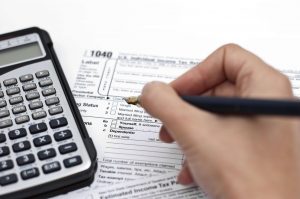
LegalZoom is not a law firm and does not provide legal advice, except where authorized through its subsidiary law firm LZ Legal Services, LLC. Use of our products and services is governed by our Terms of Use and Privacy Policy. Discarding tax records too early could cause significant liability for your business. You can scan paper records onto your computer, download files that are already digital, or even take pictures and upload them to your computer. Once you know the basics of debits and credits, you’re on your way to creating journal entries for detailed records.
- It’s best to check your state’s rules and maintain records for the longest required amount of time.
- They can protect you in litigation and help ensure compliance with federal and state laws and regulations.
- Likewise, these records can help support your business in case of any legal issues.
- Before you toss them, double check to see whether anyone else you do business with might need them.
- Owner Actions, Inc. helps people buy and build businesses by offering pro help, tools, and step-by-step resources.
Keeping good records ensures that you have accurate financial statements and that you can assess how your business is doing at any time. Keeping track of your records means that you claim all expenses that you’re allowed — helping to reduce how much you have to pay at tax time. The length of time you should keep a document depends on the action, expense, or event which the document records. Generally, you must keep your records that support an item of income, deduction or credit shown on your tax return until the period of limitations for that tax return runs out.
Transition to Digital Solutions
This guide will walk through how long you need to keep certain records and what you need to keep, so you’ll be prepared if the IRS comes asking for your records. Our partners cannot pay us to guarantee favorable reviews of their products or services. Your employer identification number (EIN) or tax ID Number is like a social security number. It can never be assigned to another business, and you should retain it permanently, even if you no longer operate your business. If you don’t file a return at all, the IRS can come after your business at any time. To ask for a clearance certificate for GST/HST registrants, fill out Form GST352, Application for Clearance Certificate (under section 270 of the Excise Tax Act), and send it to your tax services office.
For instance, you may need taxes and brokerage financial statements from previous years if you’re meeting with a financial adviser. If your home is hit by a fire or flood, or a thief pays a visit, you may need quick access to your insurance papers. If you become ill, your loved ones may need to find how long to keep business records papers that prove they can look after you, such as your healthcare proxy or durable power of attorney. Knowing how long to keep tax returns and other records can help businesses respond to information requests. Additionally, owners can use this information to better understand their businesses.
Worthless securities or bad debt deduction
The IRS and other tax authorities can deny deductions for unsubstantiated expenses, potentially leading to interest and penalties. Plus, if you opt for online software, your business records will be in the cloud rather than a pile on your desk. And if your accounting software lets you do things like accept credit card payments, create invoices, and import bank transactions, your records will be in one location with minimal effort. Your Bench bookkeeping team automates your financial admin, connecting bank accounts, credit cards, and payment processors to import information into our platform. Your team also answers questions and completes your tax prep ahead of filing. We can even handle your tax filing and provide unlimited, on-demand consultations with a tax professional.

Make sure your computer is password protected, and consider using an encryption program like Microsoft BitLocker, Apple FileVault, or a third-party program. Choose a well-protected cloud storage program, and use a unique and complex password with two-factor authentication. You should retain lease and business loan documents that pertain to tax deductions for the seven-year period described earlier. Businesses organized as corporations should keep some additional documents. These include board and shareholder meeting minutes, annual reports, corporate bylaws and amendments, and a stock ledger permanently.




